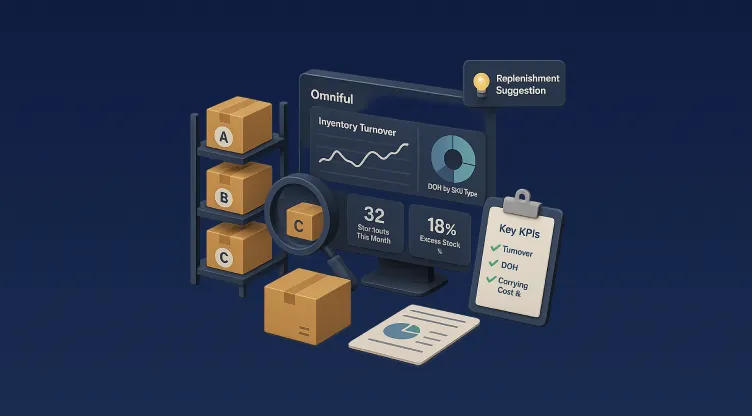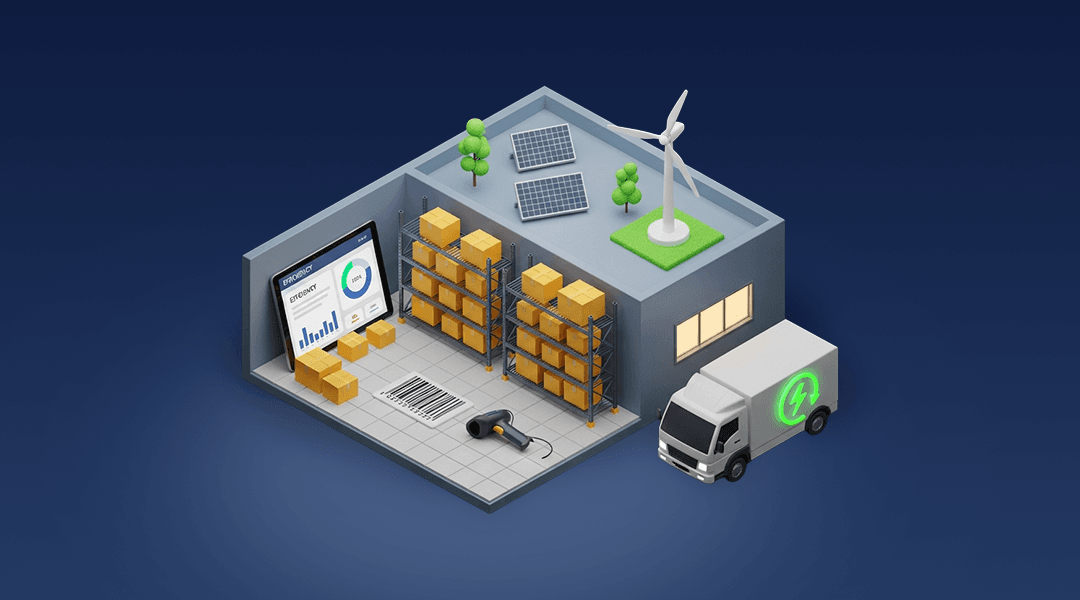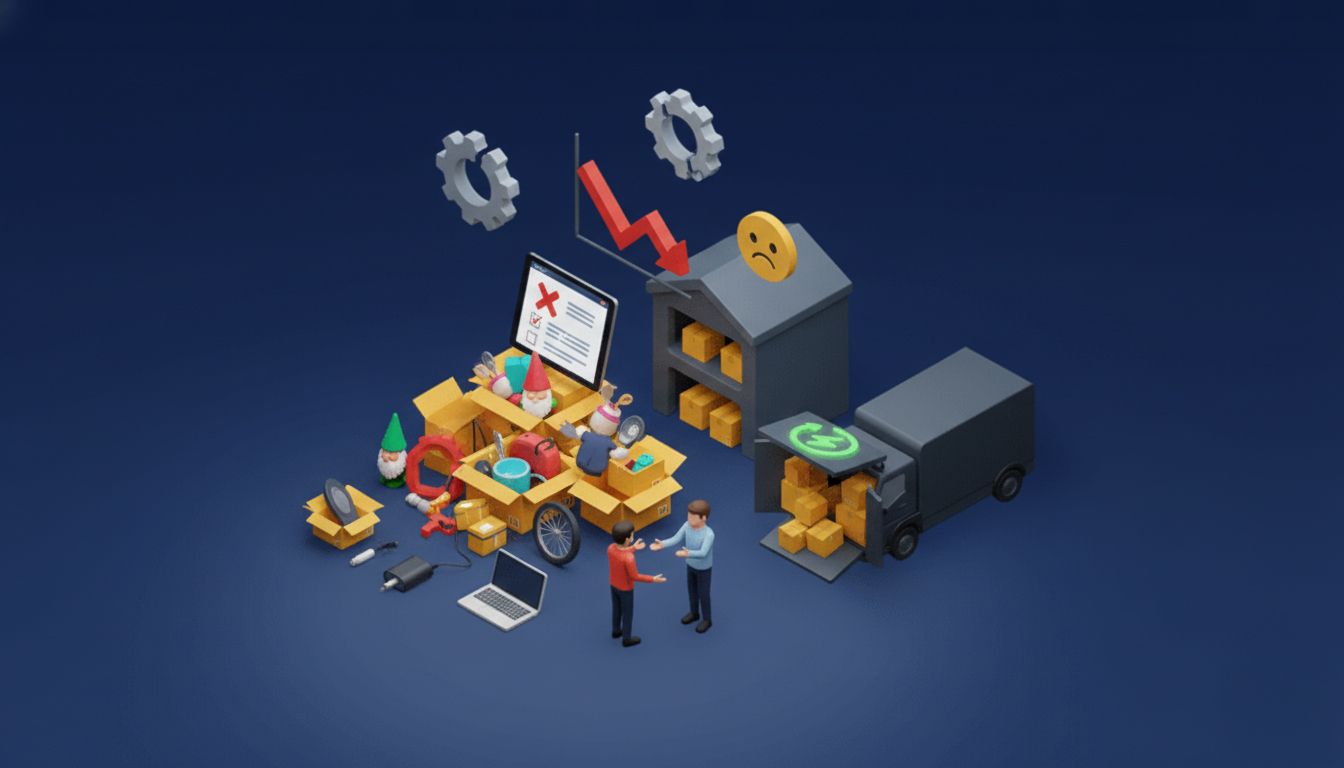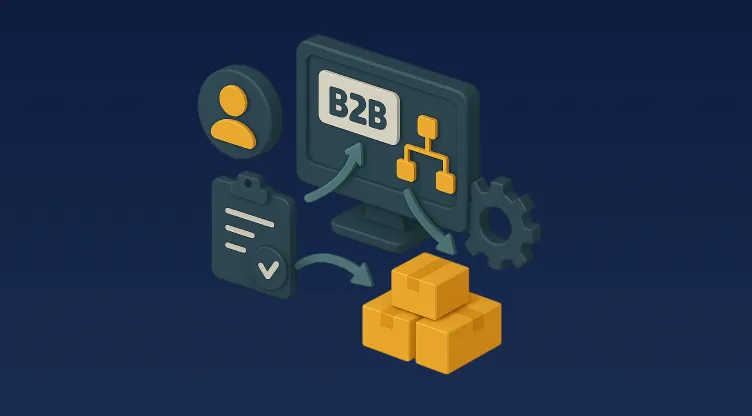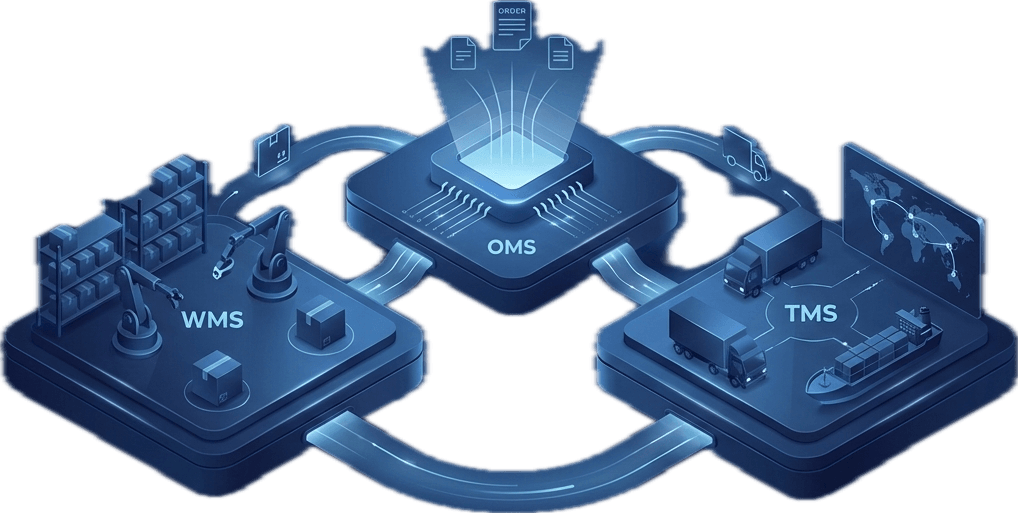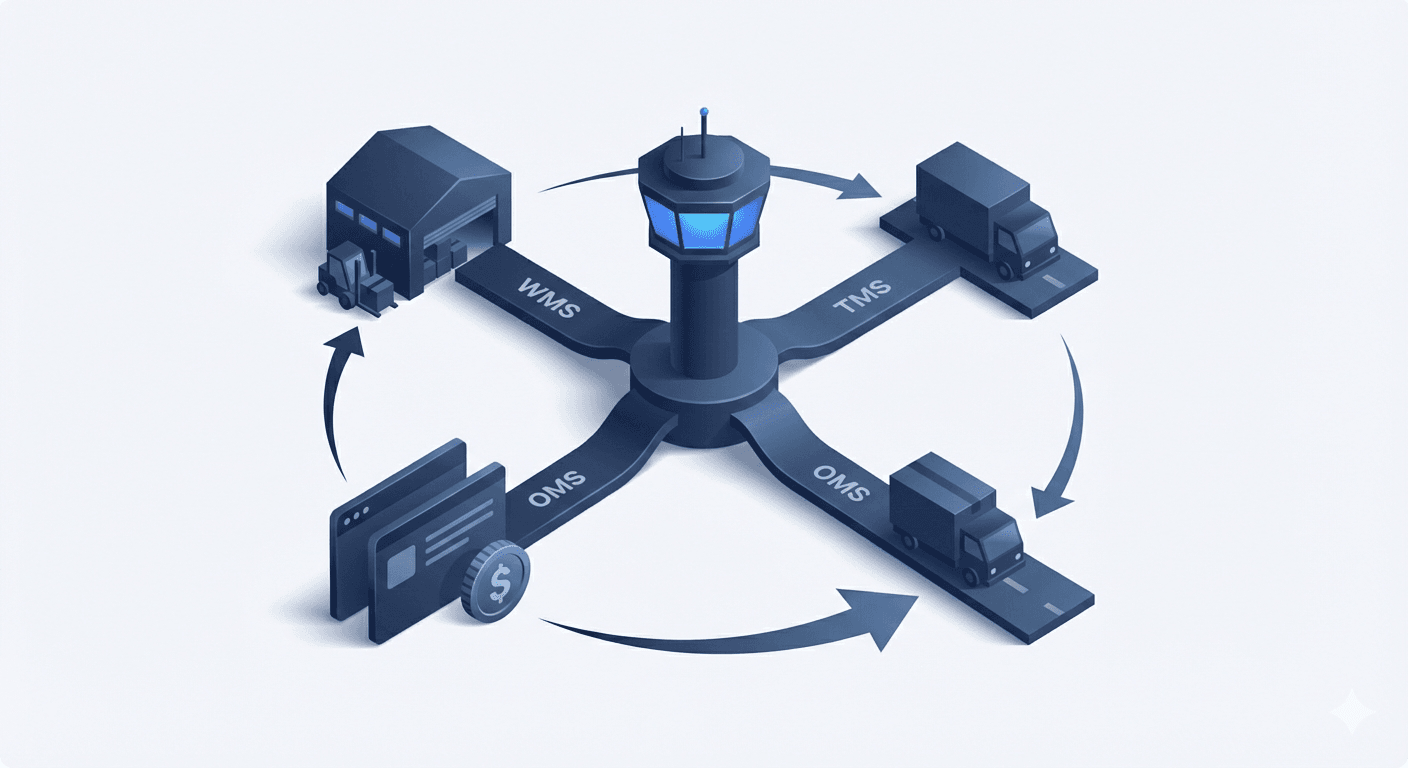Redefining Green Logistics: How TMS Route Planning Reduces Emissions in Last-Mile Delivery

Table of Contents
Key Takeaways for Eco-Driven Logistics
- Urban deliveries produce high emission volumes in fast-growing MENA cities
- TMS solutions enhance route accuracy and vehicle usage to cut carbon output
- Advanced tools reduce distance travelled and fuel consumed per delivery
- Smart systems minimise repeated delivery attempts and empty return trips
- Integration with carbon tracking tools is becoming a logistics standard
- Countries like Saudi Arabia and the UAE are encouraging cleaner freight models
- Omniful’s TMS system enables sustainable route planning and carbon accountability
Why Sustainable Transportation Matters More Than Ever
In recent years, delivery volumes across the Middle East have surged. E-commerce has brought massive growth to logistics firms. But this growth has come with rising emissions—especially in last-mile transport.
Fuel-burning vehicles zigzag through busy roads. Drivers revisit locations due to failed deliveries. And many vans still carry less than full loads.
Together, these factors increase fuel usage, cost, and environmental impact.
For companies that want to reduce their carbon footprint, smarter planning is the first step. With the help of a Transportation Management System, logistics teams can transform daily operations into climate-conscious strategies.
Unpacking the Emission Challenge in Last-Mile Delivery
Last-mile routes in urban centres—such as Riyadh, Cairo, and Dubai—are often short but inefficient. Drivers face traffic, frequent stops, and detours. These add up quickly.
Challenges include:
- Deliveries planned without traffic data
- Low load-per-trip ratios
- Multiple attempts for the same customer
- Uncoordinated return trips
- Vans left idling during handovers
These small inefficiencies combine to create significant emissions over time.
Without proper tracking or planning tools, even experienced logistics teams struggle to control the damage.
The Role of TMS in Building Sustainable Deliveries
A Transportation Management System (TMS) is not just a scheduling tool. It’s a platform that enables logistics teams to make delivery choices that lower emissions, save time, and improve performance.
Let’s explore its impact:
Dynamic Route Planning
TMS software calculates routes using live data. It analyses:
- Traffic congestion
- Delivery time windows
- Road closures
- Drop point density
This ensures drivers take the most direct path with minimal fuel use.
Grouped Deliveries by Zone
Orders heading to the same area are grouped in batches. This reduces kilometres per parcel and avoids overlapping trips.
Vehicle Load Matching
Instead of assigning orders randomly, TMS systems assess vehicle space and weight capacity. This prevents under-loaded trips and makes each delivery more efficient.
Delivery Time Optimisation
Timely deliveries prevent failed attempts. When drivers reach recipients on schedule, they avoid rescheduling or repeating the trip—a major emissions source in MENA cities.
MENA’s Shift Toward Green Logistics
Across the Middle East, governments are adopting policies that support sustainable transport:
- Saudi Arabia’s Vision 2030 promotes emission reduction in logistics
- Dubai’s RTA Green Mobility Plan supports electric fleet integration
- Egypt’s transport reforms include better emissions tracking tools
These shifts aren’t just about compliance—they’re opening doors for private firms to become leaders in environmental performance.
Companies that act early benefit from incentives, lower long-term costs, and stronger brand perception.
How Carbon Tracking and Offsets Complete the Sustainability Cycle
While improved routing reduces emissions, some environmental impact will remain. That’s where carbon offsetting steps in.
Modern TMS platforms, like Omniful, are being developed with tools to:
- Estimate emissions based on route length and vehicle type
- Connect with verified carbon offset networks
- Generate reports for internal audits or client communication
- Allow checkout-level customer offset contributions
This integrated approach empowers logistics businesses to measure, manage, and mitigate their impact with ease.
Practical Example: Sustainable Route Planning in Action
Case Study: Retail Deliveries in Jeddah
A national retailer uses Omniful’s TMS system to handle same-day deliveries from three warehouses.
Using smart trip clustering and live route updates, they:
- Reduced total kilometres travelled by 19%
- Increased successful first deliveries by 24%
- Avoided high-traffic areas through automatic re-routing
- Collected performance data to shape future campaigns
Their customers now receive deliveries faster and with lower environmental impact.
Why Omniful Stands Out as a Sustainable TMS Platform
Omniful provides logistics companies with tools that combine efficiency with environmental consciousness.
Key sustainability features include:
- Trip Batching: Combines nearby deliveries to reduce distance
- Route Visualisation: Helps planners avoid repetitive or overlapping paths
- Live Vehicle Monitoring: Enables quick adjustments when delays occur
- Capacity-Aware Planning: Matches load to van space
- Geozone Management: Prevents routes through restricted or polluted zones
- Emissions Logging: Records carbon data for each delivery run
- Returns Management: Enables combined pickups and deliveries to save fuel
- Shipping Gateway: Matches shipments with low-impact carriers
Built for the MENA market, Omniful considers local conditions, urban infrastructure, and regional goals.
Business Benefits of Greener Delivery Operations
Going green isn’t just about the planet. It’s a smart business move.
Here’s how a sustainable TMS benefits your bottom line:
- Lower fuel consumption means reduced transport costs
- Better route planning means fewer driver hours and overtime
- Improved delivery accuracy reduces rescheduling and complaints
- Clear reporting tools help win eco-conscious clients
- Regulatory readiness ensures smooth expansion in high-compliance zones
- Positive brand visibility strengthens loyalty in competitive markets
Green logistics isn’t extra work—it’s just smarter logistics.
Action Steps for Cleaner Fleet Operations
Transitioning to sustainable transport doesn’t mean replacing your fleet. The first step is planning better trips, using the right tools, and tracking what matters.
Omniful makes this easy.
✅ Explore the TMS Platform
✅ Book a Live Demo
✅ Discover the Benefits of Emissions Tracking
Frequently Asked Questions
How does route optimisation reduce emissions?
By choosing the shortest, least congested routes and batching nearby deliveries, your team reduces vehicle fuel use.
What role does TMS play in offsetting carbon?
TMS platforms track delivery emissions and allow businesses to connect with offset programmes, balancing out the impact.
Is this relevant for my business in MENA?
Yes. Cities in the region are prioritising sustainability. Omniful’s TMS adapts to local road, fleet, and compliance conditions.
Do I need new vehicles to go green?
Not right away. Efficient planning, delivery grouping, and smart routing reduce emissions from existing fleets.
Can I use this with inventory and retail systems?
Absolutely. Omniful integrates with Inventory Management, POS, and Warehouse Management for seamless coordination.



